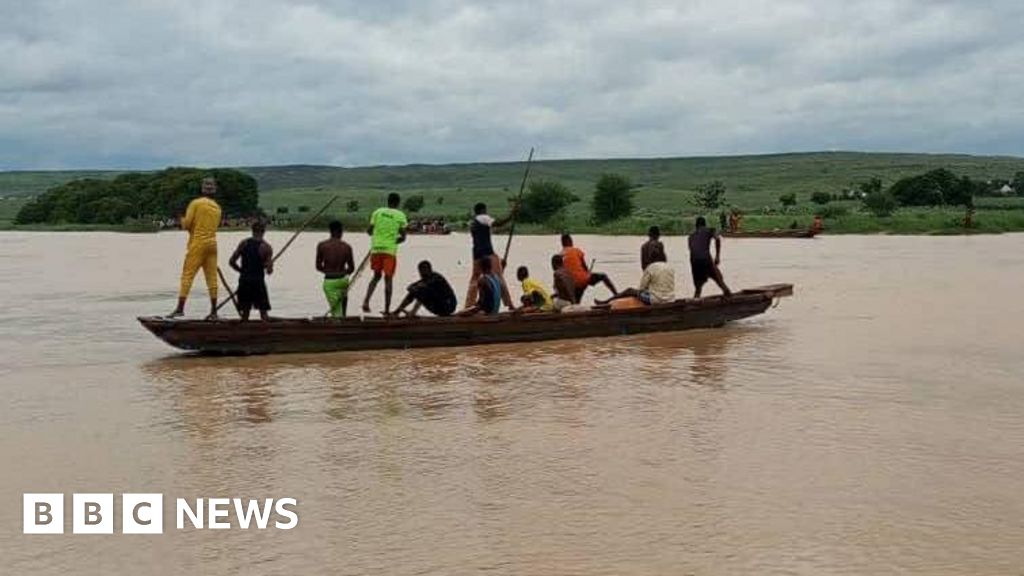Rescuers in Nigeria search for dozens missing after boat csizes

```html Rescuers Search for Dozens Missing After Nigeria Boat Capsizes
Rescue efforts are underway in Sokoto state, northern Nigeria, following a boat accident on the River Goronyo on Sunday. Authorities report that over 40 passengers remain missing after the boat, carrying more than 50 people to a local market, capsized.
The National Emergency Management Agency (NEMA) is coordinating the search and rescue operation, working alongside local authorities. While four individuals have been found alive, the focus remains on locating the missing passengers.
Recurring Tragedy: Boat Accidents in Nigeria
This incident highlights a recurring and devastating problem in Nigeria: frequent boat accidents. These are often attributed to a combination of factors, including overcrowding, inadequate boat maintenance, and a lax enforcement of safety regulations.
"Sadly, this is not an isolated incident," says Dr. Fatima Hassan, a transport safety analyst at the University of Abuja. "We've seen similar tragedies unfold repeatedly across Nigeria's waterways. The underlying issues – inadequate infrastructure, poor regulation, and a lack of awareness – need to be addressed urgently to prevent further loss of life."
Recent Incidents and Historical Context
December 2024: 54 bodies were recovered from the River Niger after a boat carrying a possible 200+ passengers capsized. November 2024: A wooden canoe carrying nearly 300 passengers overturned in the Niger, resulting in almost 200 deaths. 2023: Over 100 people drowned in southwestern Nigeria when a vessel carrying approximately 300 passengers capsized while travelling from Kwara to Niger state after a wedding.
The history of boat accidents in Nigeria is long and tragic. Many rivers and waterways serve as vital transport routes, particularly in rural areas where road infrastructure is limited. However, the lack of investment in safe and reliable water transport has created a dangerous situation for many communities.
Enforcement of Safety Regulations
Nigerian regulations mandate that all passengers wear life jackets. However, availability, particularly in rural areas, is often limited. Even when available, adherence to the rule is not always enforced.
"The government has a responsibility to ensure that safety regulations are not just on paper, but are actively enforced," argues Mallam Abubakar Sani, a community leader in Sokoto. "This includes providing affordable life jackets, ensuring boats are properly maintained, and training boat operators on safe navigation practices. Without these measures, these tragedies will continue to occur."
Challenges and the Way Forward
The vastness of Nigeria's waterways presents a significant challenge to effective monitoring and enforcement. Corruption within regulatory bodies has also been cited as a contributing factor to the problem.
Prof. David Ekhator, a political science professor specializing in governance in Africa, suggests a multi-faceted approach. "Addressing this issue requires a concerted effort involving government agencies, local communities, and civil society organizations. This includes investing in infrastructure, strengthening regulatory oversight, promoting safety awareness, and tackling corruption within the maritime sector."
NEMA has stated that it is intensifying efforts to locate the missing passengers. The agency has also reiterated its commitment to working with relevant stakeholders to improve safety on Nigeria's waterways and prevent future tragedies.
The incident serves as a stark reminder of the urgent need for improved safety measures and infrastructure on Nigeria's waterways to prevent further loss of life. The search continues, but the underlying issues that contribute to these accidents must be addressed to safeguard the lives of those who rely on water transport.
More on this story as it develops.
Go to BBCAfrica.com for more news from the African continent.
Follow us on Twitter @BBCAfrica, on Facebook at BBC Africa or on Instagram at bbcafrica ```
Originally sourced from: BBC News Africa
